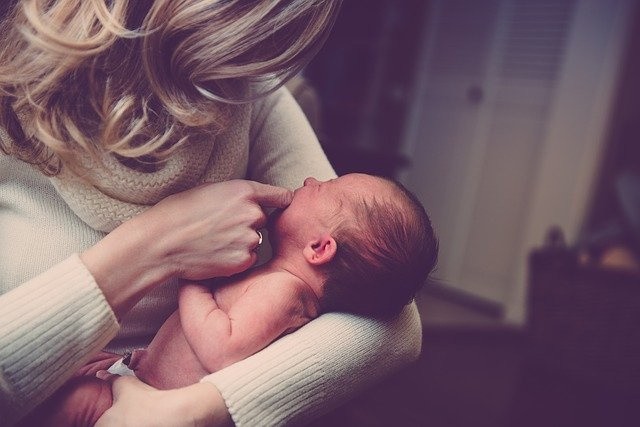Moms Are Not Okay: Why COVID-19 Pandemic is Worse for Mental Health of Latino Mothers

The COVID-19 pandemic has dealt a huge economic impact in the U.S., but it has also turned many people's lives upside down, affecting many people's mental health, especially mothers.
The COVID-19 pandemic has caused changes in where we work and how we get work done. Many struggles with mental health issues as they try to make ends meet, waiting for their return to the office.
This is especially hard for working mothers, who constantly have to worry about caring for their children while also trying to earn. But it's not just them.
Beyond this small group of mothers, most U.S. mothers face many mental health problems bought by the COVID-19 pandemic. This can also be most true for Latino mothers, as many COVID-19 cases are Latino adults and even children.
More pregnant women and new mothers suffer from anxiety and depression because of the health crisis, reported ABC News.
The disruptions to daily life routine have left them feeling helpless, anxious, and depressed. As the future after COVID-19 is quite far off still, these feelings are normal, said a study from the University of Alabama.
The research tried to shed light on the emotional toll that the pandemic has on new and mothers.
Of their 900 new mother interviewees, 40.7% had depressive symptoms compared to 15% before the pandemic.
The study also found that most of them, at 72%, were experiencing moderate to high anxiety. This is a 43% increase from before.
It isn't just true for the U.S., but also for the U.K. Data shows that almost 20% of U.K. mothers report depressive symptoms. This is double the numbers before the pandemic, said The Guardian.
The toll COVID-19 has on mothers is genuinely worrisome, and many factors come into play.
Pregnant Mothers Find it Hard to Get Help
With news about COVID-19 being transmissible from mother to child, some pregnant women are bound to worry, noted Mental Health America.
The National Institutes for Health has published Coronavirus Disease 19 Treatment Guidelines to help health workers in dealing with COVID-19 patients. It contains special consideration for pregnancy and women in post-delivery stages.
They said they would be updating the guidelines often as management of the disease evolves.
Maternal Mental Health Leadership Alliance also includes information about research and studies on the COVID-19 pandemic's impact during pregnancy and postpartum.
Mothers are Overwhelmed and Anxious
The gloomy atmosphere that the pandemic can bring to many homes can multiply if a woman is dealing with it postpartum.
Maternal mental health conditions, also known as "postpartum depression," can happen anytime during the pregnancy. It includes anxiety, depression, panic attacks, obsessive-compulsive disorder, and post-traumatic stress disorder.
Many factors are at play, and women have to understand that they are not at fault if they get this.
Latino Mothers Worry for Their Children
Hispanic or Latino children are at higher risk of getting COVID-19, and one of the factors that have to be considered is the nature of their parents' work.
In an earlier report, we noted that Latino children might get the virus from their parents who work more on the frontlines and bring it home without knowing they have it.
With this in mind, parents can get anxious as to whether they brought home the disease to their children or not. Noting that they work in the frontlines every day, they face this problem daily.
It can also significantly negatively impact their mental health and affect them both at home and work.
Check these out!
These Small Everyday Activities Put You at COVID-19 Risk
3 Tips for Keeping Kids Social Amid COVID-19 Pandemic
Virtual Forever: These Things Will Be Done Virtually Even After the Pandemic Ends
Subscribe to Latin Post!
Sign up for our free newsletter for the Latest coverage!
















